| Article ID | Journal | Published Year | Pages | File Type |
|---|---|---|---|---|
| 4269901 | The Journal of Sexual Medicine | 2014 | 8 Pages |
IntroductionFactors influencing prostate‐specific antigen (PSA) changes in men undergoing testosterone (T) therapy have not been well studied.AimThe aim of this study was to assess the influence of selected variables on PSA changes in hypogonadal men administered with 1.62% testosterone gel (T‐gel) for 6 months.MethodsA double‐blind, placebo‐controlled study of 274 (234 T‐gel, 40 placebo) hypogonadal men >18 years of age, with baseline T concentrations <300 ng/dL, PSA ≤2.5 ng/mL, and negative digital rectal examination. Subjects received once‐daily T‐gel for T therapy.Main Outcome MeasuresChanges in mean serum PSA, percentage of free PSA (%fPSA), and T from baseline to 6 months (182 days).ResultsMean age was 53.5 years and baseline mean values were total T 247 ng/dL, PSA 0.9 ng/mL, and %fPSA 24.6%. Among men treated with T‐gel, T increased to 499 ng/dL and PSA increased by 0.1 ng/mL (P = 0.0012). PSA increased ≥0.3 ng/mL in 26.3%, <0.3 ng/mL in 73.7%, including a decline from baseline in 33.0%. In the placebo group, T increased 29 ng/dL to 274 ng/dL, and PSA decreased 0.1 ng/mL, compared with baseline. A greater increase in PSA was noted in men ≥60 years old than in men <60 years old (0.4 vs. 0.05 ng/mL, respectively; P = 0.0006). Mean PSA did not change in men with baseline serum T >250 ng/dL, whereas it increased by 0.2 ng/mL in men with T ≤250 ng/dL (P = 0.0031). PSA increased 0.3 ng/mL in men with baseline %fPSA <20% and 0.1 ng/mL in men with %fPSA ≥20%.ConclusionsOverall, T‐gel treatment was associated with a minor increase in PSA, of questionable clinical significance. Factors predicting greater PSA increases included age ≥60 years, baseline T ≤250 ng/dL, and %fPSA <20%. Men with T >250 ng/dL and age <60 years demonstrated minimal or no PSA change. Morgentaler A, Benesh JA, Denes BS, Kan‐Dobrosky N, Harb D, and Miller MG. Factors influencing prostate‐specific antigen response among men treated with testosterone therapy for 6 months. J Sex Med 2014;11:2818–2825.
